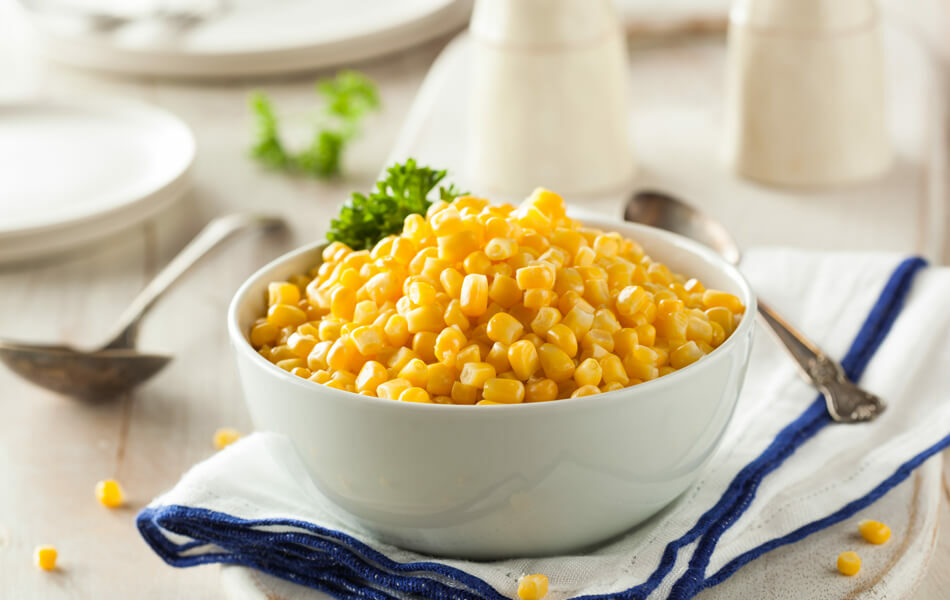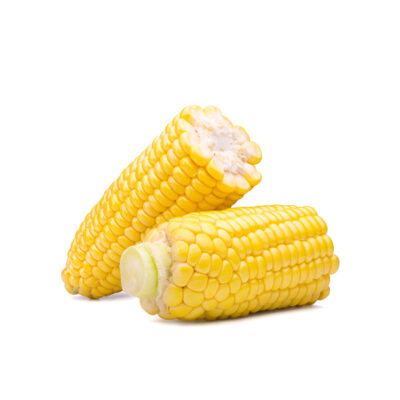Is Corn Good or Bad for Diabetes? Glycemic Index and Sugar Content
Corn can be part of a healthy diet for people with diabetes. Learn how it affects your blood sugar, the glycemic index, and its sugar content.

Corn is one of the most commonly eaten vegetables in the United States, yet it occasionally receives a bad reputation due to its high natural sugar and carbohydrate content.
However, studies suggest that eating corn is good for people with diabetes. It can be a part of your diet, but you should consume it in moderation.
Is Corn Good for Diabetes?
Yes, eating corn is good for people with diabetes. Corn has a low glycemic index that helps control the blood sugar level effectively.
Human clinical trials and certain animal studies have shown that regular consumption of corn and its derived whole-grain products has been linked to a lower risk of developing serious diseases such as heart disease, obesity, and type 2 diabetes.
Corn also contains trace levels of vitamins B, E, and K, as well as minerals such as magnesium and potassium.
Can People With Diabetes Eat Sweet Corn?
Yes, you can consume sweet corn if you have diabetes. However, due to its high natural sugars, it is suggested you consume sweet corn in moderation.
Sweet corn has a low carbohydrate content and a high dietary fiber content. Furthermore, sweet corn has a lot of starch, which slows digestion and avoids a quick spike in blood sugar levels.
Phytochemicals found in sweet corn regulate the release of insulin in the body. This prevents abrupt changes in blood glucose levels, either up or down.
Sweet corn should be consumed when the body is most in need of energy. The best times to eat are during lunch or for breakfast. The body has adequate time to process and use the energy supplied by sweet corn when eaten early in the day.
Additionally, sweet corn aids in preventing bloating and gas, which are brought on by incomplete food digestion.
Corn Nutritional Value
One regular ear of corn (105g) provides 90.3 calories, 3.43g of proteins, 1.42g of fat, and 17.5g of net carbohydrates. In addition to providing vitamin C, E, and A, some fiber, and potassium, corn is a great source of thiamin. The following values are given by the USDA for 100g of corn:

Glycemic Index of Corn
Foods with a high glycemic index raise blood glucose levels quickly. These foods with high GI values are frequently, but not always, heavy in refined sugars and carbs. Foods that have a high glycemic index have a score of 70 or above.
Low GI meals, on the other hand, digest and absorb nutrients more slowly, which results in a slower rise in blood sugar levels. These are frequently high in protein, fat, or fiber. Low-glycemic foods have a score of less than 55.
Corn has a low glycemic index of 52, and the glycemic index of sweet corn is 55.
The amount of sugar a specific food contributes to our blood sugar levels is measured by the glycemic load. Corn has a 15-point Moderate Glycemic Load.
What Are the Benefits of Corn for Diabetes?
Corn not only tastes delicious, but it also has numerous benefits. It can effectively treat a wide range of problems. Did you know it can help with constipation and insulin resistance? Read on to find out more about the health benefits of corn:
#1 Rich in phytochemicals
According to one study, corn contains phytochemicals such as phenolic acids, flavonoids, fiber, and resistant starch that complement those found in fruits, veggies, and other whole grains when consumed together.
#2 Promotes digestive health
Corn’s high amylose concentration benefits digestive health due to its resistance to digestion. As a result, dietary changes that increase corn and other whole-grain products slow digestion and prevent the risk of chronic diseases.
#3 Improves insulin resistance
The effects of resistant starch in corn have been thoroughly researched, and a moderate dose of resistant starch (approximately 10g/day) from corn starch offers benefits in lowering glucose and insulin response, while a larger intake of resistant starch (20g/day) from corn starch supports digestive health.
Furthermore, sweet corn has a lot of starch, which slows digestion and avoids a quick spike in blood glucose levels.
#4 Prevents constipation
Constipation occurs when you cannot pass stool as frequently as you should. Your stool may become firm and dry, making passage difficult. According to a study, constipation is prevalent among people with diabetes.
Long-term poor blood glucose control may increase the risk and frequency of constipation. Constipation can be relieved by consuming foods that are rich in fiber. One regular ear of corn (105g) contains nearly 2.1g of dietary fiber.
Also, the fiber content present in corn also aids in weight loss.
Products Derived From Corn You Should Avoid
Any food that has undergone preparational changes to improve its flavor, shelf life, or convenience is referred to as processed food. Different foods have different levels of processing. Foods that have been heavily processed frequently have harmful amounts of added sugar, sodium, and fat.
These substances enhance the flavor of the food we consume, but consuming too much of them can result in major health problems like diabetes, high blood pressure, obesity, and heart disease.
Here are some of the corn-derived processed foods people with diabetes must avoid:
Corn starch
Both the number of carbs and the glycemic index are relatively high in corn flour. As a result, it is not ideal for people with diabetes and is not appropriate for their medical conditions. Since cornstarch has undergone considerable processing and had all of its nutrients removed, it is classified as a refined carb.
Corn flour has a glycemic index of 87.
High fructose corn syrup (HFCS)
Manufacturers create high fructose corn syrup from corn starch. Consuming high amounts can lead to obesity, metabolic syndrome, and tooth damage.
HFCS is present in sodas, packaged fruits, crackers, salad dressing, and many more. A study shows that diabetes prevalence is 20% more in countries with higher consumption of HFCS when compared to those with low consumption.
FAQs
It differs from person to person. Some individuals find that when they eat corn with other diabetes-friendly meals, it improves their ability to control their blood sugar levels.
Others discover that it just doesn’t work as well for them and that they must increase their insulin intake as a result. To determine what makes your blood sugar levels stay steady, experiment and see what works best for you.
Corn has a low glycemic index of 52. Low glycemic index foods score less than 55, and high glycemic index foods score more than 70. High GI means increased blood sugar.
Yes, sweet corn can be consumed by people with type 2 diabetes.
Sweet corn has the highest concentration of polyphenols, a potent antioxidant. Polyphenols have been proven in studies to inhibit the onset of type 2 diabetes. Since it has a high level of natural sugar, consuming too much will send your blood sugar soaring.
A Word From Our Nutritionist
Corn has numerous health benefits. One of the benefits of corn is its low-fat content. Low-fat foods contribute to maintaining a healthy body weight, which is important for people with diabetes. Being a low-fat food, it is also not harmful to the heart.
People with diabetes should avoid consuming corn flour due to its high glycemic index and high carb content.
Bloating and diarrhea may result from eating excess corn. Therefore, consuming corn should be done slowly if you have a weak digestive system.
Corn should be avoided on a low-carb diet as it has a very high carbohydrate content. A 100-gram serving of corn contains 18.7g of carbohydrates. But you can consume baby corn on a low-carb diet as it has a very low net carbohydrate value. Baby corn contains 2.31g of net carbs per 100g serving.
Conclusion
Although there are many advantages of eating corn, it’s vital to examine how its high carb content can increase your blood sugar level.
Although not every person with diabetes responds to particular foods in the same way, tracking your food intake and sticking to dietary recommendations might be helpful.

















































 Select your language:
Select your language: 








